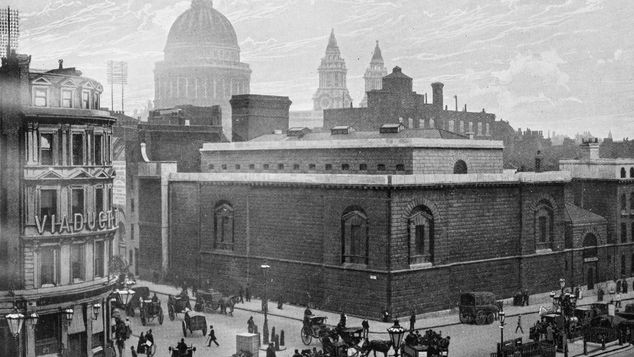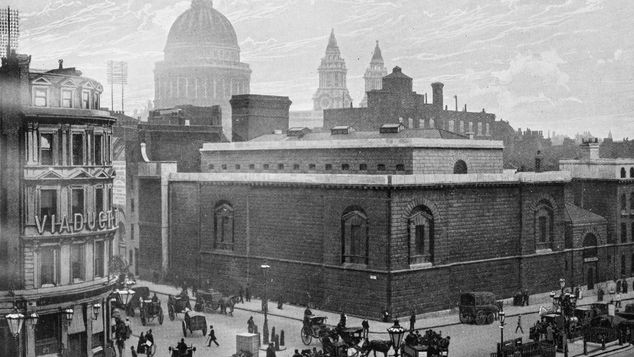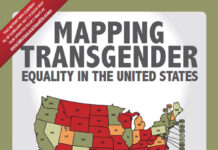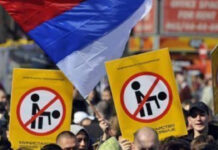James Pratt and John Smith were the last men to be executed for sodomy in England
On this day in 1835 James Pratt and John Smith were executed by hanging in front of Newgate Prison on London. They are the last two men who were executed in England for the crime of sodomy.
The pair were arrested in August of 1835 when they were visiting a man named William Bonhill who rented a room in a boarding house near Blackfriars Road in Southwark. Bonhill had lived in the boarding house for 13 months and his landlord later told the court that he often observed that pairs of men would visit him regularly.
The landlord said that on the 29th of August he saw Pratt (30 years) and Smith (40 years) visit Bonhill. Suspicious of what they might be doing in the room he found a vantage point at a nearby stable where he tried to see through the room’s window. Later he and his wife spied on the two men through the keyhole of the door, claiming they witnessed the two men being sexually intimate.
He broke down the door to confront the two men. Bonhill was not present but returned shortly afterwards with a jug of ale. The landlord fetched a policeman, and all three men were arrested.
Pratt was married with children and worked as a groom, some reports suggest the older man Smith was an unmarried labourer, but other reports say he was married and worked as a servant.
Both men appeared in court on September 21st, where they appeared before Baron Gurney who found them guilty of breaking the Offences Against the Person Act. He sentenced them to be executed by hanging.
Following their sentencing, Magistrate Hensleigh Wedgewood, who had committed them to stand trial, wrote to the Home Secretary arguing that the sentence was unjust. Wedgewood highlighted those wealthier men in society charged with the same crime would often be able to post bail, and then simply move abroad and live in exile.
While Pratt and Smith were being held at Newgate Prison (pictured above) they were observed by writer Charles Dickens, who was being given a tour of the prison. Dickens wrote about seeing the two men in their cell in his book Sketches by Boz.
Over the September and October court sessions seventeen individuals had been sentenced to death, fifteen of them were given a remission on their sentences via a royal pardon. All except Pratt and Smith.
Their wives had pleaded for clemency for their crimes, as had the landlord and his wife, but it was to no avail. A large crowd gathered in front of the prison to watch the two men be executed on the morning 27th November.
Bonhill was sent to Australia, leaving England on 5th November 1835 he arrived in the Van Diemen’s Land penal colony on 21st February 1836. He died five years later, aged 74.
The statements made by the landlord and his wife in the case have been described as being somewhat dubious by modern legal experts. It is unlikely they could have seen all the events they claimed during a brief peak through a keyhole, and some of the things they claim to have seen are not anatomically possible.
The two men were posthumously pardoned for their crimes in 2017 when the United Kingdom enacted the Alan Turing Law, which removed all former convictions for the crimes relating to being homosexual.
Their story is remembered in the play Particular Disposition written by Benjamin Fulk, and in the song 45 Geroge Street by English folk band Bird in the Belly.
[embedded content]
OIP Staff
You can support our work by subscribing to our Patreon
or contributing to our GoFundMe campaign.











